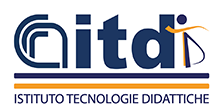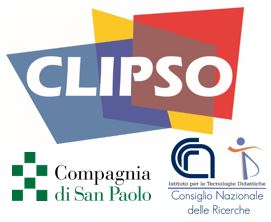Classi ibride per la Scuola in Ospedale
Framework
Children experiencing long-term hospitalisation often lack ongoing contact and interaction with their peers and this can generate a sense of isolation. Illness also poses an obstacle to the normal flow of studies and reintegration in class. This can impede learning processes and undermine the sense of belonging to the class group. The CLIPSO project aims to overcome these effects through hybrid classes in which the adoption of digital technologies like videoconferencing helps to dissolve the spatial separation of the classroom and the hospital ward.
The main funder of CLIPSO is Compagnia di San Paolo, the Foundation of the San Paolo Bank.
Objectives
CLIPSO’s main objectives are to:
- further research into the implementation of hybrid classrooms within hospital schools. This should allow learners undergoing long-term or periodic hospitalisation to maintain contact with their class, to continue their studies, and feel part of the class.
- lay the foundations whereby the quest to foster inclusion through the introduction of hybrid classes becomes a driver for pedagogical innovation per se.
Major Activities
The main activities foreseen in CLIPSO are:
- design and testing of a hybrid class model that meets the needs of hospital schooling. To ensure sustainability and scalability, this model will embrace cloud and mobile technologies;
- development of story-worlds for immigrant children that help them learn the basics of the Italian language and thus facilitate interaction with their teachers, fellow patients, classmates and hospital staff. These story-worlds will feature chatbots that manage dialogue between the learner and an animated character;
- creation of a blended training course for teachers at the Gaslini Paediatric Hospital in Genoa that focuses on the deployment and management of hybrid classes;
- production of a series of informative online videos targeting parents, associations, educators and hospital staff. Among other things, these will explain how best to accommodate the deployment of hybrid classes as a teaching and learning model.
Field activities are expected to progressively involve around 20-30 young long-term patients and their respective school classes. The majority will be long-term inpatients at the Gaslini Paediatric Hospital, while others will be outpatients receiving regular day hospital treatment there; at least ten percent will be learners with an immigrant background.
Expected results
The results and outputs foreseen are:
- a framework/reference model for hospital schooling based on hybrid classes that supports the inclusion of young patients in active, collaborative learning activities which are reconcilable with their treatment regimes;
- learning paths devoted to Italian as a second language for young patients with an immigrant background. These are to form the basis for interactive story-worlds featuring chatbots;
- a blended (online/offline) training course for teachers at the Gaslini Paediatric Hospital;
- a similar course offered exclusively online for the various classroom teachers who, at some time or other, have a student under treatment participating in CLIPSO activities;
- an information kit in printed and digital form designed for the various stakeholders that CLIPSO addresses (parents, volunteer teachers, hospital staff, researchers, etc.);
- a cloud-based system (with accompanying app) supporting interaction and collaboration among all those directly or indirectly involved in CLIPSO activities;
- aggregated apps bringing together a suite of online services underpinning hybrid classes;
- chatbot-enhanced interactive story-worlds that support the learning of Italian as a second language.
 Italiano (Italia)
Italiano (Italia)  English (United Kingdom)
English (United Kingdom) 

